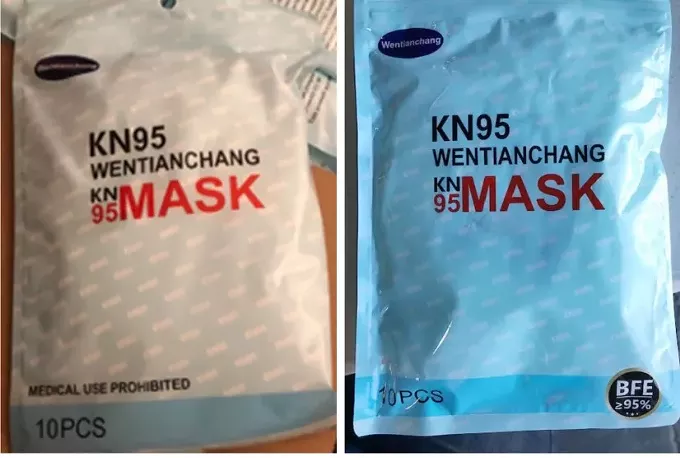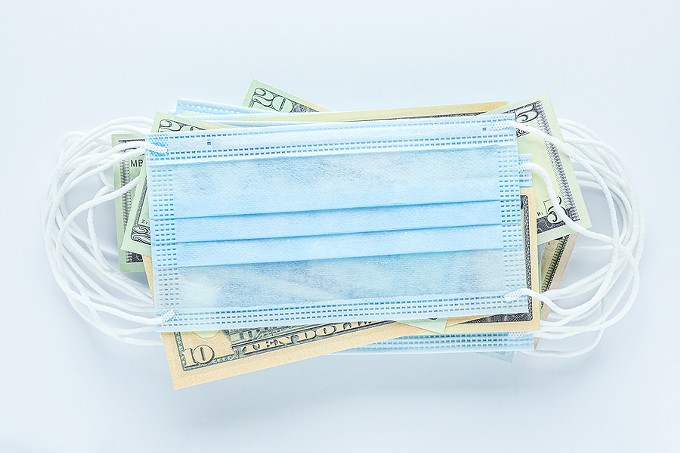Thursday, July 16, 2020
In the middle of March, as the coronavirus pandemic was shutting down the country, McKinsey & Co., the giant management consulting firm, saw opportunity. The firm sprang into sales mode, deploying its partners across the country to seek contracts with federal agencies, state governments and city halls. Government organizations had been caught unprepared by the virus, and there was a lot of money to be made advising them on how to address it.
That month, a partner in McKinsey’s Washington, D.C., office, Scott Blackburn, got in touch with an old colleague. Deb Kramer had just been promoted to become an acting assistant undersecretary at the Department of Veterans Affairs, where Blackburn, whom McKinsey declined to make available for an interview, had held senior roles between 2014 and 2018. During that period, the two had overseen a major overhaul of the agency called “MyVA,” a project McKinsey had worked on as well. Blackburn had worked at McKinsey before going to the VA, and he returned to the firm afterward. He and Kramer were in touch repeatedly in the middle of March, according to a person familiar with the exchanges.
On March 19, Kramer made a highly unusual request: The VA, she said, needed to hire McKinsey within 24 hours. The VA runs a sprawling health care system that serves 9 million veterans, many of them older and plagued by chronic health problems, and typically takes many months to solicit and accept bids and vet bidders for a contract. The health system’s leadership wanted to sign a multimillion-dollar contract with McKinsey to spend up to a year consulting on “all aspects” of the system’s operations during the COVID-19 pandemic, Kramer told a VA contracting officer, Nathan Pennington. Pennington memorialized parts of the exchange in a public contracting document.
Monday, July 13, 2020
Jason Cardiff didn’t want his new business to end up like his last one, an alleged pyramid scheme involving robocalling and selling unwitting customers bogus remedies to lose weight or quit smoking. One of his ventures, Prolongz, falsely claimed to offer men “increased ejaculation control.”
“I am not going to lose another company,” Cardiff told his lawyer in an April 5 email, just before detailing a fantasy list of people he wanted to place on the board of his new venture, VPL Medical Inc.
His wish list included Brian Travis Kennedy, a right-wing think tank leader and pundit with connections to the Trump administration, who Cardiff cryptically said could be the company’s “advisor to the White House.” That didn’t work out, Cardiff says.
He also wanted to make sure he had controlling stock of the company and the ability to buy out his business partner if he wanted, according to the email.
“As I (have) raised all the capital and done all the work once again,” Cardiff wrote in typo-laden prose, “I am not going to lose out on perhaps my biggest company to date. Further I have a group that wants to put in 10 mil this week.”
Thursday, June 25, 2020

This article is co-published with The Texas Tribune, a nonprofit, nonpartisan local newsroom that informs and engages with Texans.
Lucas Rensko was making money through a popular handyman-for-hire app called TaskRabbit, doing odd jobs and delivering groceries, when he picked up a task that led him to a leaky-roofed warehouse on a tattered road in northwest San Antonio.
Inside, a man named Jaime Rivera had set up long tables where five or six other “Taskers” earning about $20 an hour were ripping Chinese masks out of plastic bags and stuffing them into new ones that were identical but for one potentially deadly difference. The old packages were labeled in all caps “MEDICAL USE PROHIBITED,” meaning not to be used by doctors and nurses who need the strongest protection from tiny particles carrying the novel coronavirus. The new bags, intended to make their way to Texas hospitals, simply omitted that warning.
This seemingly small deception highlights a huge problem for medical workers whose best defense against a virus that ravages the body with horrifying complexity is a simple, but trustworthy, mask. That trust has eroded as Chinese-made masks claiming, sometimes falsely, to be 95% effective at filtering virus-laden particles made their way into hospitals and now local convenience stores. You might have bought them: KN95s.
Monday, March 21, 2016
There they were, the four of them talking so loudly to each other that they were almost yelling. Their Cajun accents were so strong that they would have better fit in a cartoon. Their voices drowned out the conversations in the seats next to them. Two of them had the lower lip and gum decay that only a lifetime of chewing tobacco can inflict on someone, and they all wore amazingly greasy hair. Despite the frigid December weather, they boarded the plane in sleeveless shirts and ripped jeans. Did I mention that they were loud?
My mind was set.
I fortunately sat far enough away that their voices faded out after 30 minutes and I slept deeply. I was awakened to an intercom announcement: “We are now making our final descent into Istanbul, please turn off all electronics and return your seat to the upright position.”
“Idunmind if they speak Turkush here, suhlonguz everone understanz English too!” cackled my Cajun friend. It had to have been a joke. Nobody who willingly leaves their own country really thinks like that. But nobody else was laughing. Not even the others in his group.
Friday, March 4, 2016
Here at Tucson Weekly, we talk about weed news a lot (see here and here). Now, it's time for our MMJ-card-carrying readers to tell us—and the rest of the city—what they think about the local cannabis scene.
Editor Mari Herreras puts it like this:
Medical marijuana patients we talk to never hesitate to tell us about that special dispensary where they get the best deal or have the best edibles.So, MMJ patients, go vote! You've got until the end of March.
You love your pot providers and you love that certain strain that either takes care of the migraines or helps stimulate your appetite while battling a serious illness you refuse to get you down.
This is your chance to unite and tell fellow patients and other Tucsonans where the best MMJ products (and everything else weed related) are in the Old Pueblo.
Welcome to the Tucson Weedly Cannabis Bowl. You have until March 31. Results will be printed in our 2016 420 Cannabis issue on Thursday, April 14. Get smoke, er, cracking.
Tags: tucson weedly , tucson medical marijuana , cannabis , tucson medical
Tuesday, December 8, 2015
Logs can poop gifts! Who knew?
Press release of the day is from Tucson's Presidio San Agustín del Tucson Museum and includes this detail:
Unique to the event is the Traditional Tio' de Nadal of Catalonia ("Pooping Log"), a Catalan tradition dating back several centuries. Beginning with the Feast of the Immaculate Conception (December 8), the family brings a tio' (log) into the house, covers it with a blanket so he will not be cold and feeds it every night until Christmas Day. On Christmas Day the children continuously hit it with a stick while they sing a song so it will poop gifts (usually treats). If the child has been good, they get treats. If they were bad, it poops sardines. Hence the name Caga Tio' (Poop Log). Children (and children at heart) attending Luminaria Night will be able to hit the log to see if they were good or bad this year!Here's the whole release, for the Living History Luminaria Night coming up this Saturday, Dec. 12:
Tuesday, August 11, 2015
As a city we have received some big time press lately from the likes of the New York Times heralding Tucson as a hip place to live. From our vintage neon signs to rapidly growing Downtown, to our fine food and local beer establishments, we have gotten some pretty cool accolades. We were named fourth biggest city of book lovers and received numerous praises for our biking/cycling friendly community.
But, to be clear, there are some lists we don’t want to rank in the top five. Or even in the top 100 for that matter. We can all wipe a bead of anxious sweat off our brows because we did not rank as one of the Top 100 Most Sexually Diseased Cities in the United States. The data, released by rentapplication.com, compiled the latest STD statistics, in 2013, in the states by the Center of Disease Control and created a list of the towns that have the highest number of STDs.
Show Low was the only Arizona city to make it onto the list, coming in at number 49 with a rate of 1,036 reported STDs per 100,000 people.
While we might not have received the dubious honor, it’s not time to start making it with our neighbors sans rubbers. Show Low is the only city in good old’ AZ that has a higher STD rating then Tucson. We even far beat out Phoenix in our instances of chlamydia, gonorrhea, and syphilis.
It was reported that our rate of STDs per 100,000 people was 608. That includes 5,192 cases of Chlamydia, 795 cases of gonorrhea and 53 cases of syphilis. Our grand total for 2013? 6040. That’s quite a number of uncomfortable diseases that can all be treated if dealt with promptly.
Thankfully, for those of us who want to get tested, or perhaps just students in Arizona, which does not require sexual education be taught at elementary, middle and high schools, there are options available.
Tags: STDs , Tucson , Sex Ed , Sexual Health
Tuesday, May 5, 2015
Brandon Hays placed third in statewide tabloid/magazine cover design for his work on the the Fall Arts Preview.
Arizona Press Club said:
“This page isn’t without its flaws, but the lead visual certainly worked. It’s a unique approach to an annual topic. The skeleton and general ‘wild west’ feel to the illustration make this fall arts preview VERY Arizona, and that helps set it apart.”Freelancer David Mendez's piece on Tucson wrestling legend Reggie Parks came in third for community personality profile
Here's what Arizona Press Club had to say about Mendez's article:
“We had no idea that an obscure graduate of carnival sideshow acts went on to invent the ‘giant, jewel-encrusted belts’ that are now emblematic of wrestling. We were delighted to be educated through David Mendez’s colorful, conversational tale of pioneer grappler Reggie Parks.”
Tuesday, March 17, 2015
Remember a month or so ago when we found out we were so romantic? Well, good news everyone! We're also a cheap date. Coupons Daily—a world leader in romance and date planning, I'm sure—compiled a list of the 10 Cheapest Cities for Dating and we came in at #5. because it's not crazy expensive to live here and Tucson Tamale Company is delicious.
From their post:
Cost of Living: 96.5I love how that last sentence is suggesting you, the Cheap Date Scavenger, bring someone to Tucson for a date. So, people from other places: If you don't wan't to spend too much during your night out, but your private jet is ready to take you wherever, come to Tucson! We've got tamales and Agua Caliente. Or you could visit to the city that snagged the #1 spot—but you'd have to stomach being in Florida.
Affordable Restaurants: Tucson Tamale Company, Miss Saigon and Zinburger
Free/Cheap Activities: Agua Caliente Park, the Arizona State Museum and Mission San Xavier del Bac
Tucson, a thriving city in Arizona, is another great place for date night. From fine dining to exploring breathtaking sights, this city offers couples to have an affordable date night that’s memorable and romantic. Whether you’re exploring historical sites to shopping downtown, Tucson is a great place your date will love.
Thursday, November 20, 2014

- Image courtesy of shutterstock.com
Everybody knows Arizona is a low tax state. Our legislature has been cutting rates for decades, and as a result, according to the Institute on Taxation and Economic Policy, we're number 35 in overall state taxes; only 15 states have rates lower than ours. Not so if you're poor, however. If you make $27,000 or less, your tax rate is the fifth highest in the nation for your income level.
Why do the poor pay shoulder so much of the burden? The simple answer: low income tax rates.
[H]aving low personal income taxes comes at a cost. In order to pay for state and local government services, Arizona’s sales and excise taxes are 27 percent above the national average. Measured relative to personal income, Arizona has the 8th highest sales and excise tax collections in the entire country. According to the Institute on Taxation and Economic Policy (ITEP), the poorest 20 percent of Arizona households spend 8.3 percent of their income on these taxes, compared to just 1.1 percent of income for the state’s most affluent residents.
Tags: Arizona tax rates , Income tax , Sales tax , Excise tax , Doug Ducey






